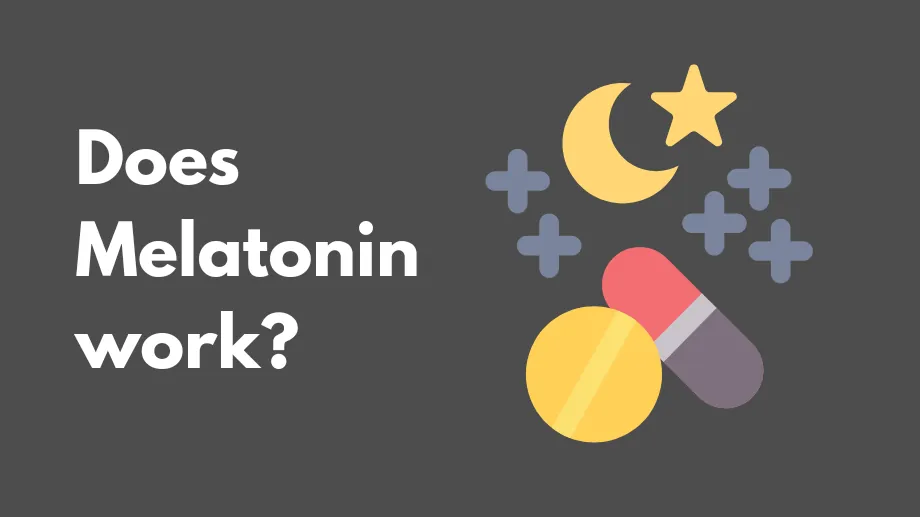Does Melatonin work?

Melatonin is a hormone produced by the pineal gland that helps regulate the body’s circadian rhythm (sleep–wake cycle). Over the past two decades, melatonin supplements have gained popularity as a “natural” sleep aid. Unlike sedatives, melatonin does not induce sleep directly but signals your body that it is time to wind down.
How does melatonin work?
Endogenous melatonin levels rise about two hours before bedtime and remain elevated through the night. Supplemental melatonin boosts these levels, helping to shift your internal clock and promote drowsiness. It also influences blood pressure, body temperature, immune function, and reproductive hormones.
Effectiveness in sleep disorders
- Delayed Sleep–Wake Phase Disorder: In adults with DSWPD, taking melatonin one hour before target bedtime can advance sleep onset by about 30–40 minutes and improve morning alertness.
- Jet Lag: Melatonin can reduce overall jet‑lag symptoms when crossing multiple time zones, improving sleep quality and daytime function compared to placebo.
- Insomnia: Evidence is mixed—melatonin may slightly shorten sleep latency (time to fall asleep), but its impact on total sleep time and quality is less clear.
- Children with Neurodevelopmental Conditions: Small trials suggest melatonin helps children with ADHD or autism fall asleep faster and stay asleep longer, though studies are short‑term.
- Alzheimer’s Disease: May reduce evening confusion and restlessness, but does not improve cognitive outcomes.
Dosage recommendations
Over‑the‑counter melatonin formulations include immediate- and extended-release tablets, gummies, liquids, and more. Doses typically range from 1 to 5 mg for adults and 0.2 to 3 mg for children.
- Start with a low dose (≤1 mg) and increase only if needed.
- Take 30–60 minutes before desired bedtime for immediate relief.
- Do not exceed 10 mg in 24 hours unless directed by a healthcare provider.
Side effects
- Daytime sleepiness or fatigue
- Dizziness and headaches
- Nausea
- Abnormal or vivid dreams
- Anxiety or tremors
- Lowered blood pressure
Use in pregnancy and breastfeeding
Data are limited. Melatonin levels normally rise during pregnancy, and supplementation may risk excess exposure. Animal studies have shown negative effects on fetal outcomes, but human data are scarce. Use during lactation is not well studied and is generally not recommended without medical guidance.
Who should avoid melatonin?
Consult a healthcare provider before use if you are:
- Pregnant or breastfeeding
- On immunosuppressants or hormone therapy
- Taking diabetes, blood pressure, or anticoagulant medications
- Living with autoimmune diseases, seizures, heart, or kidney conditions
Sources
- Auger RR et al. Clinical practice guideline for circadian rhythm sleep–wake disorders. Journal of Clinical Sleep Medicine. 2015;11(10):1199–1236.
- Auld F et al. Evidence for the efficacy of melatonin in adult sleep disorders. Sleep Medicine Reviews. 2017;34:10–22.
- Melatonin: What You Need To Know. National Center for Complementary and Integrative Health.
- McDonagh MS et al. Pharmacologic treatments for sleep disorders in children: a systematic review. Journal of Child Neurology. 2019;34(5):237–247.
- Costello RB et al. The effectiveness of melatonin for promoting healthy sleep: a rapid evidence assessment. 2014.



